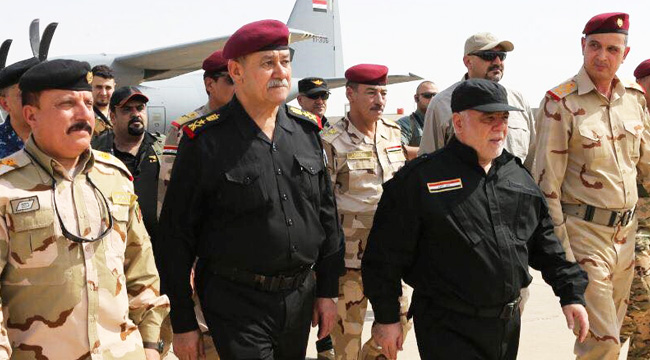
A week ago, Iraq claimed a “symbolic victory” against ISIS by recapturing the Mosul mosque where the ISIS caliphate declared itself in 2014. Now, Iraqi Prime Minister Haider al-Abadi has declared a formal victory after the nine-month fight to push the Islamic State out of its remaining Mosul stronghold. This end has arrived after a concentrated push by Iraqi forces beginning two weeks ago in conjunction with the U.S. led coalition’s airstrikes in an effort to retake the city from ISIS.
This ending, such as it is, remains a conflicted declaration. After all, Mosul sits in shambles after nearly 1 million citizens were driven from their homes, some of which are understood to be booby-trapped with explosives that must be cleared. Some ISIS fighters, possibly suicide bombers, still remain in the city and will attempt further bloodshed. U.S. military officers spoke to the New York Times about the struggle that shall endure:
“It’s going to continue to be hard every day,” said Col. Pat Work, the commanding officer of the Second Brigade, 82nd Airborne Division, which is carrying out the American advisory effort here.
“Iraqi security forces need to be on the top of their game, and we need to be over their shoulder helping them as they move through this transition to consolidate gains and really sink their hold in on the west side,” Colonel Work said as he rolled through the streets of west Mosul recently in an armored vehicle. “ISIS will challenge this.”
Indeed, NBC News points out that this victory could present “as big [of] a problem as defeat.” Not only do remaining ISIS fighters present dangers, but new violence could break out between Arabs and Kurds or Sunnis and Shi’ites as the city struggles to regain balance, and these groups will make territorial claims. Further, there’s the continued existence of “outside powers” who have undeniably helped to mold Iraq since 2003 — when the U.S. helped overthrow Saddam Hussein. Indeed, it was this very shift that arguably helped create the vacuum that allowed ISIS to flourish in Iraq.
Still, the end of the long battle in Mosul has left the Iraqi government optimistic (unlike in Syria, where the battle still rages), and the prime minister’s office issued a statement to that effect: “The commander in chief of the armed forces Haider al-Abadi arrived in the liberated city of Mosul and congratulated the heroic fighters and the Iraqi people on the achievement of the major victory.”
(Via New York Times, NPR, NBC News & The Telegraph)
